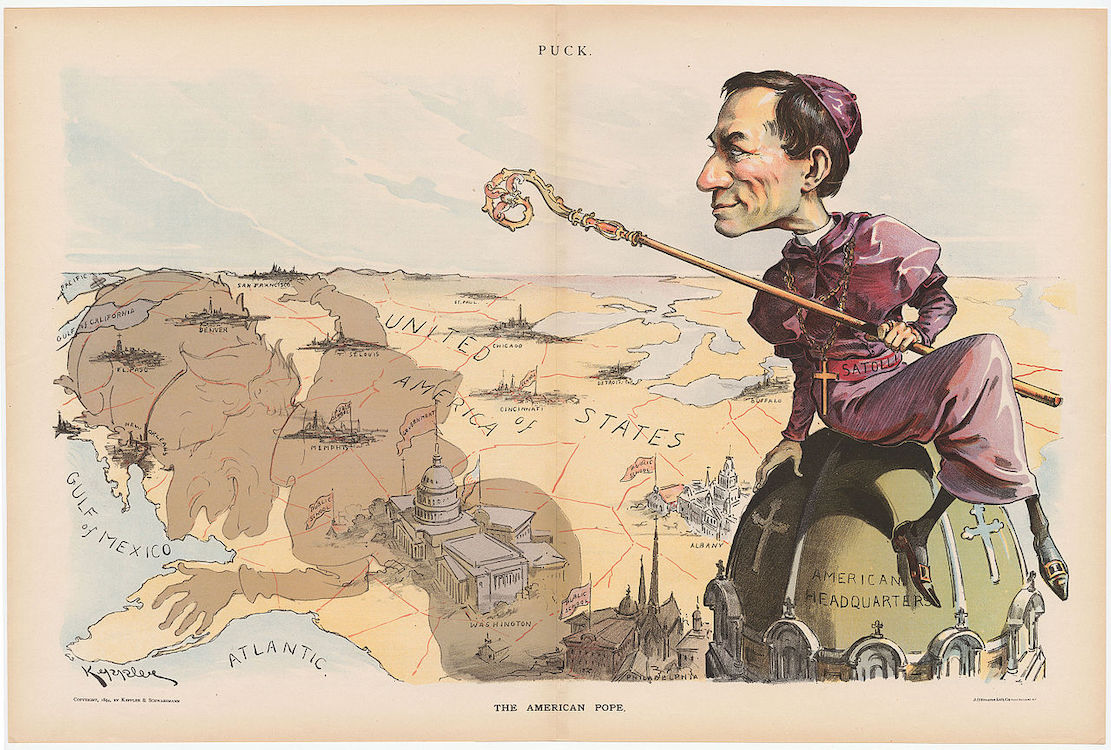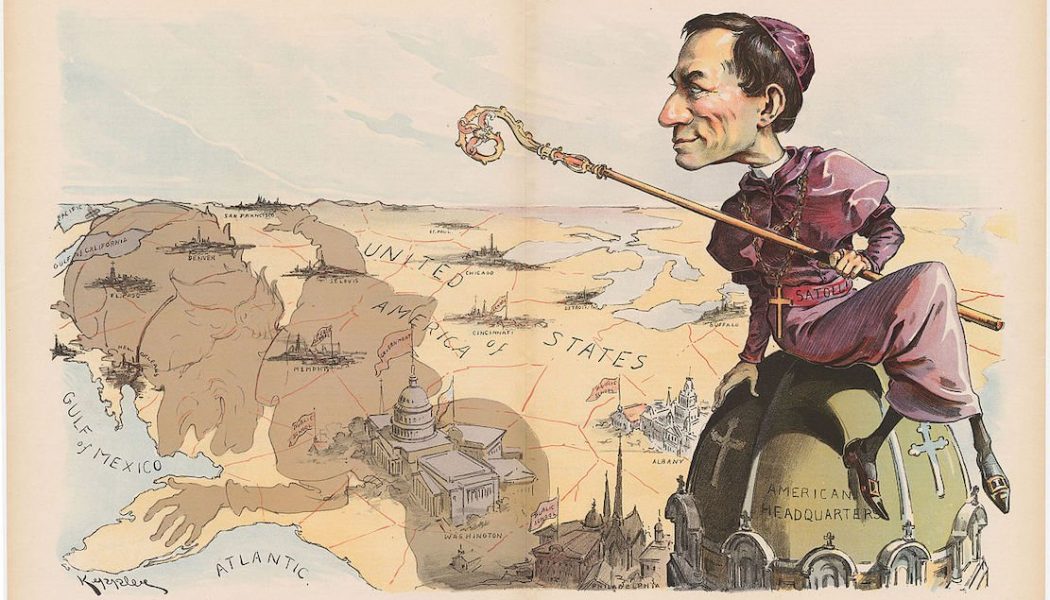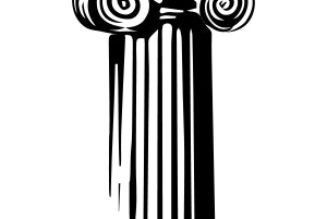
President Trump is expected to pick a Supreme Court nominee to fill the seat left vacant by the death of Justice Ruth Bader Ginsburg as early as the end of this week. Two of the people on Trump’s short list of possible nominees are Catholic women: Amy Coney Barrett, a federal appellate court judge in Chicago, and Barbara Lagoa, a federal appellate court judge in Atlanta.
If either of these eminently qualified judges gets the nomination, expect the media to go full-throttle with anti-Catholic bigotry. And expect Democrats to outdo the media in this regard, which is no easy task.
The media has wasted no time casting aspersions on Barrett for her Catholic faith. On Monday, the Washington Post ran a kind of explainer on Barrett, which included an out-of-context quote from a talk she apparently gave years ago, that a “legal career is but a means to an end… and that end is building the Kingdom of God.”
The statement itself, even without context, is an altogether ordinary expression of sincere religious belief that any devout person, whether Catholic, Protestant, Jewish, or Muslim, would readily affirm. Yet the Post’s Ron Charles highlighted it in a tweet Monday, as if to warn us that Barrett might try to usher in a Catholic theocracy if she gets onto the Supreme Court.
Also Monday, Newsweek published a somewhat hysterical piece about how Barrett is affiliated with a Christian religious group, People of Praise, that served as the inspiration for “The Handmaid’s Tale”—as if Barrett, a woman on the president’s short list for the Supreme Court, somehow exemplifies the oppression of women by a religious patriarchy. (Update: Newsweek posted a correction to this piece Tuesday, saying Margaret Atwood never mentioned People of Praise as an inspiration for “The Handmaid’s Tale,” which calls into question the entire point of the article. The social media headline, however, remains unchanged.)
Elected Democrats have been even more frank about their antipathy towards Catholics, even to the point of appearing to support an anti-Catholic religious test for nominees to the federal bench. It was during Barrett’s 2017 confirmation to the federal appellate court that Democratic Sen. Dianne Feinstein admitted openly that the judge’s Catholic faith was a problem for her, infamously telling Barrett, “the dogma lives loudly within you, and that’s of concern.”
During those same confirmation hearings, Democratic Sen. Dick Durbin grilled Barrett on her faith, suggesting there’s something nefarious about being an “orthodox Catholic” and asking her, “Do you consider yourself an orthodox Catholic?” She replied, “I am a Catholic, Senator Durbin.”
It’s hard to imagine the religious beliefs of any Democratic nominee to the federal judiciary being questioned with this much open disdain, and with the strong implication that these kind of Catholics—the kind that take the teachings of the church seriously on issues like abortion and gay marriage—aren’t fit for positions of public trust.
Some Democrats don’t even bother to imply this, they just come out and say it. No one stands out more in this regard than Democrats’ own vice presidential candidate, Sen. Kamala Harris.
It was Harris who last year accused federal judicial nominee Brian Buescher of having “extreme positions” simply because he’s a member of the Knights of Columbus, a Catholic benevolent society that also adheres to church teaching on things like abortion and gay marriage. (Full disclosure, I’m a member of the Knights of Columbus. Lucky for me, I’ll never have to go through a Senate confirmation.)
“Were you aware that the Knights of Columbus opposed a woman’s right to choose when you joined the organization?” asked Harris, implying that the Knights are just a bit too Catholic for someone like Buescher to be trusted as a federal judge.
Harris was joined in this calumny by Sen. Mazie Hirono, who asked Buescher if he would end his membership in the organization “to avoid any appearance of bias.” The exchange prompted Sen. Ben Sasse to introduce a resolution declaring it unconstitutional to reject nominees because of their membership in the Knights of Columbus, which was approved by unanimous consent.
Anti-Catholic Bigotry Is a Very Old Problem in America
For years now, leftists in the media have been wondering out loud if there are too many Catholics on the court, implying over and over again that Catholics are less likely to serve the public interest than any other group. We saw it after the Hobby Lobby ruling in 2014, we’ve seen it with Trump’s appointments to the federal appellate court, and we’ll almost certainly see a very ugly and open version of it if he nominates Barrett or Lagoa.
All of this is just the latest iteration of an old problem in America. Through much of the nineteenth and early twentieth centuries, Catholics were suspected of dual loyalties at best, at worst loyalty to Rome. They were shunned, maligned, and discriminated against by the Protestant mainstream in various ways, perhaps most infamously by the so-called Blaine Amendments in the 1880s, which barred state funds for Catholic schools.
Harvard historian Arthur M. Schlesinger, Sr., called anti-Catholic prejudice “the deepest bias in the history of the American people.” Others, like historian John Higham, called it “the most luxuriant, tenacious tradition of paranoiac agitation in American history.”
While anti-Catholic attitudes might have softened over the last 60 years—John F. Kennedy, Jr., didn’t face nearly the same hostility for being a Catholic in 1960 that New York Gov. Al Smith did as the Democratic presidential candidate in 1928—they have not gone away. Among the leftists who now control the Democratic Party, they have become quietly commonplace.
Today, being anti-Catholic is one of the last acceptable prejudices in polite liberal society, and if Trump nominates a Catholic to the Supreme Court, we’re going to see its ugliness on full display once again.






